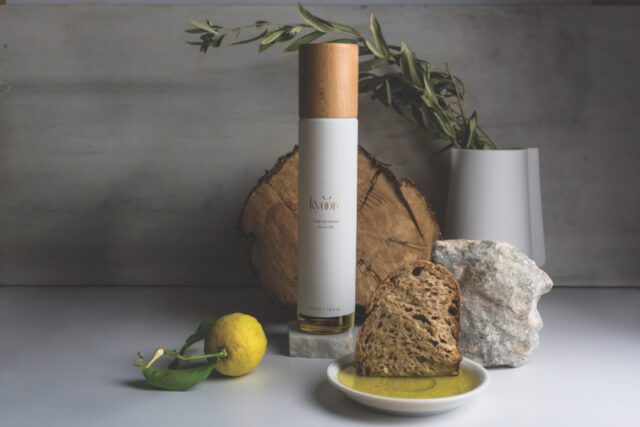
By Dr. Limor Goren
I grew up on the shores of the Mediterranean in Tel Aviv, and like millions of other people in the region, followed the principles of the Mediterranean diet. Olive oil was our main source of fat; we used it for drizzling, marinating, dressing and cooking. But it wasn’t until I moved to New York and was working on my PhD in molecular biology that I discovered that not all olive oils are created equal.
Olive oil is considered a healthy source of fat because of its unique composition of heart-healthy unsaturated fatty acids. But in recent years, scientists like myself are discovering that the healthiest properties of olive oil come from a group of beneficial molecules called polyphenols.
Polyphenols exist in nature in most of the fruits we eat, from blueberries to cacao beans. Olives and extra-virgin olive oil contain some unique antioxidant and anti-inflammatory polyphenols. One of them, oleocanthal, was the subject of my research when I was working in a cancer lab at Hunter College at The City University of New York.
I’ve seen with my own eyes how it wiped breast and prostate cancer cells off a dish, and shrank tumors in mice prone to pancreatic cancer. Other researchers discovered oleocanthal’s neuroprotective capabilities. Olive oil polyphenols were found to be heart-protective, reduce inflammation and contribute to a healthy and diverse gut microbiome. The problem is that not all olive oils available at the store have a high enough amount of polyphenols to benefit the average person. In my research, I collected and compared dozens of olive oil samples from around the world, and noticed that only a few had the potent anticancer effects of the pure polyphenols. The reasons are due to both the quality of the oil produced and to improper storage and distribution practices.

I started Kyoord to champion and celebrate the art of making a truly high-phenolic, healthy olive oil. We are committed to producing the best-quality olive oil possible by using time-tested and science-backed processes, and olive varieties that are naturally polyphenol-rich. We harvest early in the season while the olives are still green and unripe, and we use calibrated extraction techniques to ensure maximum levels of polyphenols. The yield from our olives is very small compared to mainstream producers, but the quality is easily discernible.
When tasting olive oil, you should feel notes of bitterness and grass. Most importantly, you should notice a slight stinging sensation at the back of the throat. It might taste like swallowing black pepper. This is the telltale sign of oleocanthal, assurance that you are eating authentic, fresh olive oil.
Dr. Limor Goren, PhD, is a molecular biologist and cancer researcher specializing in cellular metabolism. She is the founder of Kyoord, a premium olive oil company focused on the healing benefits of olive oil polyphenols.





